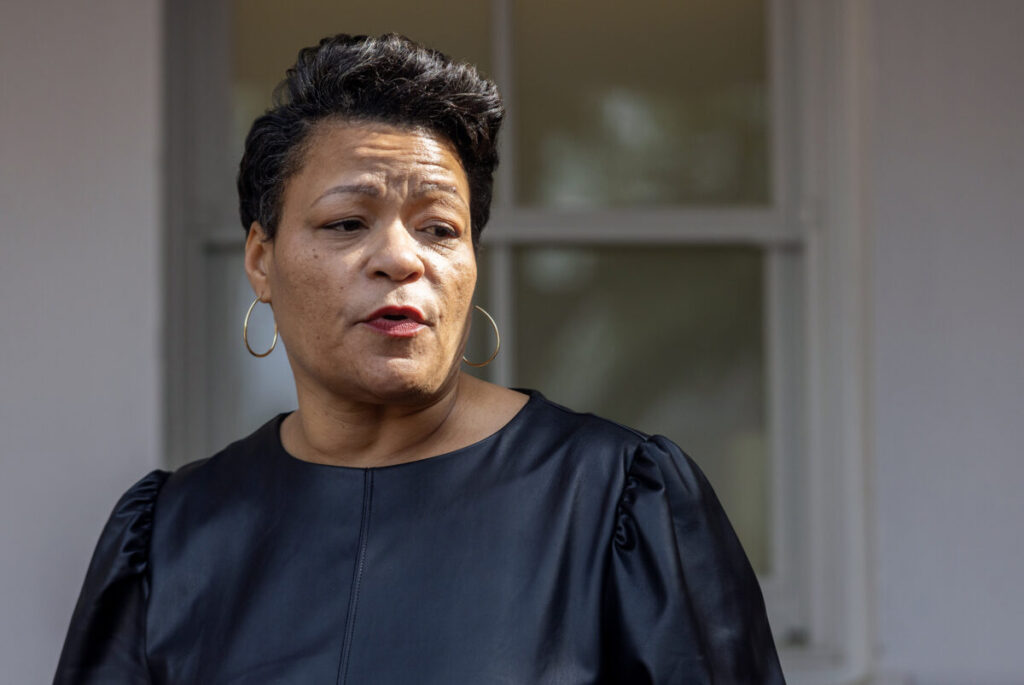New Orleans has always been a city of legends—some sung, some subpoenaed. This month’s rerun stars Mayor LaToya Cantrell, indicted in August for what prosecutors describe as a creative interpretation of “public service.” The federal paperwork reads like a travel blog with receipts: wire fraud, conspiracy, obstruction of justice, and a subplot involving a security-detail romance that apparently required its own budget line.
A Familiar Tune
The Department of Justice alleges that Cantrell used city resources to finance personal travel and conceal her relationship with former NOPD officer Jeffrey Vappie. The indictment cites roughly $70,000 in misused funds, including upgraded flights and hotel stays stretching from France to the French Quarter. Prosecutors say more than 15,000 WhatsApp messages were exchanged between the two—because nothing says “innocent business travel” like a European itinerary and an encrypted chat log.
Cantrell pleaded not guilty and continues to serve while awaiting trial. She’s term-limited anyway, which in local politics is code for “outgoing, but not going quietly.”
Expense Accounts and Emergency Powers
Long before the indictment, residents were already tallying the price of her jet-set leadership style. A Fox 8 investigation found her latest trip to France cost over $50,000 including upgraded flights—roughly the cost of filling every pothole between City Hall and Louis Armstrong Airport. When reporters asked why the mayor preferred business class, her answer was that economy seats were “unsafe.” For whom remains unclear.
Then came the “emergency powers” phase, in which the mayor declared a trash crisis and awarded contracts without bids. The City Council eventually overrode one of those contracts, arguing that “emergency” apparently meant “any time the paperwork is inconvenient.” It’s an interpretation unique to New Orleans, where the line between flexibility and impunity is as faint as a Bourbon Street curfew.
A City That Never Met a Scandal It Couldn’t Re-Elect
New Orleans is no stranger to colorful governance—Huey Long made sure of that. But the Cantrell saga feels less like populism and more like entropy. Every cycle brings a new ethics review, travel audit, or federal subpoena, and each time the public treats it like Mardi Gras weather: inevitable, mildly annoying, and over once the next parade rolls through. Accountability has become a tourist attraction—locals can point it out, but no one expects it to work.
The System That Enables the Show
The real culprit here is a city charter that gives mayors sweeping discretion with almost no automatic audit trail. Budget oversight relies on council vigilance, and council vigilance tends to nap through takeoff. When state or federal investigators finally step in, it’s not reform—it’s triage. Cantrell didn’t invent the loopholes; she just flew business class through them.
Damage Control, NOLA-Style
Post-indictment, City Hall communications have alternated between legal restraint and defiant optimism. Cantrell has called the charges “politically motivated” while urging residents to “stay focused on progress.” Progress on what, exactly, is open to interpretation—garbage collection, infrastructure, or the slow federalization of city oversight. The council, for its part, has become fluent in sternly worded resolutions.
The case has drawn national coverage precisely because it feels archetypal. Every big city has its local scandal; New Orleans turns them into genre fiction. This one reads like Sex and the City Council: international travel, government credit cards, and the occasional ethics subpoena.
Why It Matters Beyond the Bayou
The larger problem isn’t whether one mayor crosses a line—it’s that the line keeps moving. Municipal governments across the country rely on “emergency” authorizations that outlive the emergencies themselves. The pandemic normalized executive shortcuts, and some leaders never gave the keys back. When oversight erodes quietly, the only people who notice are the auditors and the voters who stopped expecting better.
Cantrell’s trial, whenever it happens, won’t fix that. At best, it will add another precedent to the long tradition of “New Orleans exceptionalism,” where civic virtue is always just one indictment away from nostalgia. In a city famous for its rhythm, even scandal has a beat: allegation, denial, deflection, and a second line marching past the courthouse.
New Orleans deserved a mayor who could manage a budget without needing legal counsel on retainer. Instead, it got another lesson in why the phrase public trust remains the most expensive thing in city government.
Citations
- U.S. Department of Justice – “New Orleans Mayor LaToya Cantrell and Former NOPD Officer Indicted” (Aug 15 2025)
- Fox 8 Live – “Inside 15,000 WhatsApp messages at the center of Cantrell indictment” (Aug 15 2025)
- Washington Post – “New Orleans Mayor LaToya Cantrell charged with fraud” (Aug 15 2025)
- WWL-TV – “City Council overrides Cantrell trash contract over ‘abuse of emergency powers’” (Jul 22 2025)
- Politico – “New Orleans Mayor Indicted on Federal Fraud Charges” (Aug 15 2025)

